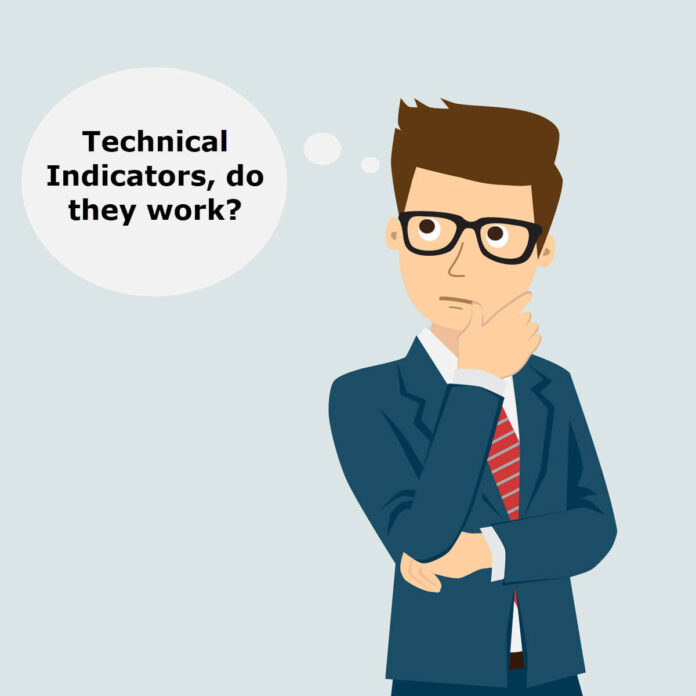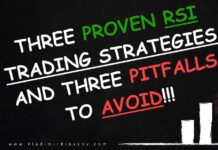
Hey Traders,
It’s Vladimir Ribakov here.
As many of you may know, I am an internationally Certified Financial Technician. Through my many years of experience it’s safe to say that trading is where I thrive the most.
One of the longest standing debates in the world of day trading is regarding technical indicators – and if they work effectively. Given the marketing angle of the industry, it is natural for many novice day traders to put their trust in unverified trading indicators that promise quick reward but the reality is that many technical indicators are fake or downright ineffective. To help access whether technical indicators are a worthwhile investment for your day trading arsenal, we’ll help cover how they work, why lagging indicators are still effective in real-time, and more need-to-know insights. One of the most interesting debates in trading is around technical indicators. Do they work? Are they just fake? How can they really help traders if they are lagging?
But first, I want to start with a joke I love, a joke that gives some light on the question – should you use technical analysis or just stick to fundamental analysis?
The joke goes like that –
Banker is calling a client..
Client – hello?
Banker – Roberto, is that you?
Client – yes, who is it?
Banker – it’s Jeffery your banker.
Client – ohhhh, what’s up?
Banker – I have good and bad news. what do you prefer first?
Client – hmmmm wow, ok let’s hear the bad
Banker – remember the stock I told you about, 2 days ago?
Client – sure! what’s up ?
Banker – well, it’s halved the price now….
Client – ohhhh no!!!! ohhh god!!! so what’s the good news then?
Banker – well, the fundamentals still look good….
So whether you find it funny or not, it’s true. Fundamental analysis is VERY important, but it simply can’t replace the value that technical analysis brings with it. Technical analysis could potentially improve your timing to enter positions and exit them. Those that don’t master technical analysis might continually claim that only fundamental analysis works, and vice versa. On the other hand, we have those who have NO idea how economic data affects the market but will still claim that fundamental analysis is, “a waste of time.”
So, now let’s face some of the most interesting questions, and I’ll try to provide the clearest answer. Heading into this, I’ve been a successful professional trader and Internationally Certified Financial Technician for 14+ years.
- 1 Do technical indicators really work?
- 2 Technical Indicators are Lagging Behind – So Do They NOT Work?
- 3 Why are there so many indicators?
- 4 Can I trade successfully without indicators?
- 5 What are the best trading indicators to use?
- 6 In-House Indicator Development
- 7 Introducing – My In-House Trading Tools & Solutions
Do technical indicators really work?
The short answer is – yes. But the longer version to the answer will be this – an indicators’ primary purpose is to ‘indicate’. It is the price that dictates. So, just know, that if you blindly choose to trust indicators then chances are that you won’t be too successful. Having an understanding of the know-how behind price action, market movement, and trends are key to all trading entries.
It’s like saying – would you cross the road just because there is a green light, or would you look left and right before, to make sure it is safe? I hope the answer for you is the latter 🙂
Technical Indicators are Lagging Behind – So Do They NOT Work?
Let’s circle back to the fundamentals. The primary purpose behind technical indicators is to indicate. Price is what dictates action. So, when it comes to those who say that indicators are ineffective because they are lagging indicators may not understand how to use indicators appropriately and within its limited capacity. Long story short, indicators are helpful investment tools for a trader’s arsenal. Remember, the core function of indicators is to indicate. They may indicate strong trends, an increase or decrease in market momentum for potential reversals, real-time overbought and oversold market conditions, and countless other trading scenarios.
Some technical indicators fall short of the credit that they rightfully deserve. For instance, some indicators can help traders find key trading intel, such as repetitive trading patterns, high volume trading zones, Japanese candlestick formations, and other intraday trading facets. So to put the final nail in the coffin of this debate, yes, technical indicators do work but they are only effective so long as they are used within their capacity.
Why are there so many indicators?
Technical indicators tend to be logic-based. Overall, most of them are algorithmic-based or rely on mathematical formulas computed from real-time market data. Those who know how to decrypt the outputted information from indicators are the traders who are the most likely to make successful investments.
To answer the question, though. Each indicator has a specific purpose, to indicate. The reason WHY there are a vast number of indicators is because there are a seemingly endless number of economic factors to consider prior to a trade entry. The more information that traders have on hand prior to a trade the more likely they are to make an educated market investment. While, its obvious that trader’s can’t know everything prior to a trade, technical indicators help bridge that critical information gap. One of the best traits regarding technical indicators is that they tend to be trade-specific. For example, if you are a trend trader then you’ll want to work with indicators that work well in a trending market.
Can I trade successfully without indicators?
Absolutely!
It’s like asking “can I be a good lawyer without using new technology? Technology is there to help you and to save you time by doing things that simply waste your time. Many technological innovations have impacted mankind. Things like laundry machines, dishwashers, etc… They save valuable time!
In the realm of trading, that’s in essence what technical indicators do. So, yes, technical indicators don’t dictate your success, but rather operate in a complimentary capacity. However, let’s say that you rely on technical analysis to help determine trading directions. Some technical indicators scan thousands of market variables simultaneously and can provide that information to day traders seamlessly through output data. That saves countless time. So from my viewpoint, indicators play a crucial role in helping traders automate their pre-trading steps and can significantly alleviate a trader’s workload.
What are the best trading indicators to use?
The one that answers your needs. What do I mean by that?
Let’s say you rely on swing highs and lows in your analysis. It would make sense to employ an indicator that scans specifically for those market events. On the other hand, if you use candlestick patterns in your trading, then it makes sense to have an indicator that scans for specific candlestick patterns. For those relying on key trading levels, like support and resistance, or volume profile levels, then it makes sense to use tools that will give you the data you need.
There is NO such thing as the “best indicator to use.” Each indicator can help with specific needs and based on your trading style, trading preferences, and your strategies. Therefore, only choose indicators that are helpful with your trading methodology.
In-House Indicator Development
With over 14 years of experience engaging the financial markets as a Certified Financial Technician, I oftentimes like to experiment to see if there are unique ways to tackle the financial markets. Since I don’t know coding but I know ins-and-outs of trading, I collaborate with my developer on a routine basis to create custom indicators for my various trading needs.
Introducing – My In-House Trading Tools & Solutions
As a Professional Investor and Certified Financial Technician, and for the the 90,000+ members of my community who know me,
As a Professional Trader, Certified Financial Technician, and Founder of a 90,000+ member trading community, technical analysis is the bread-and-butter to my trading methodology. As previously expressed, every day trader should focus on trading and more importantly, how to consistently improve as a trader on a continual basis. That’s where the vision behind creating a marketplace with my trading innovations came to light. A unique trading marketplace, full of real trading tools, indicators, and solutions that I’ve been using for my personal and professional trading endeavors. And now, you can access the same tools that my team and I have been developing. While this project is still in its infancy, in the upcoming months you’ll have access to more and more trading innovations.

















